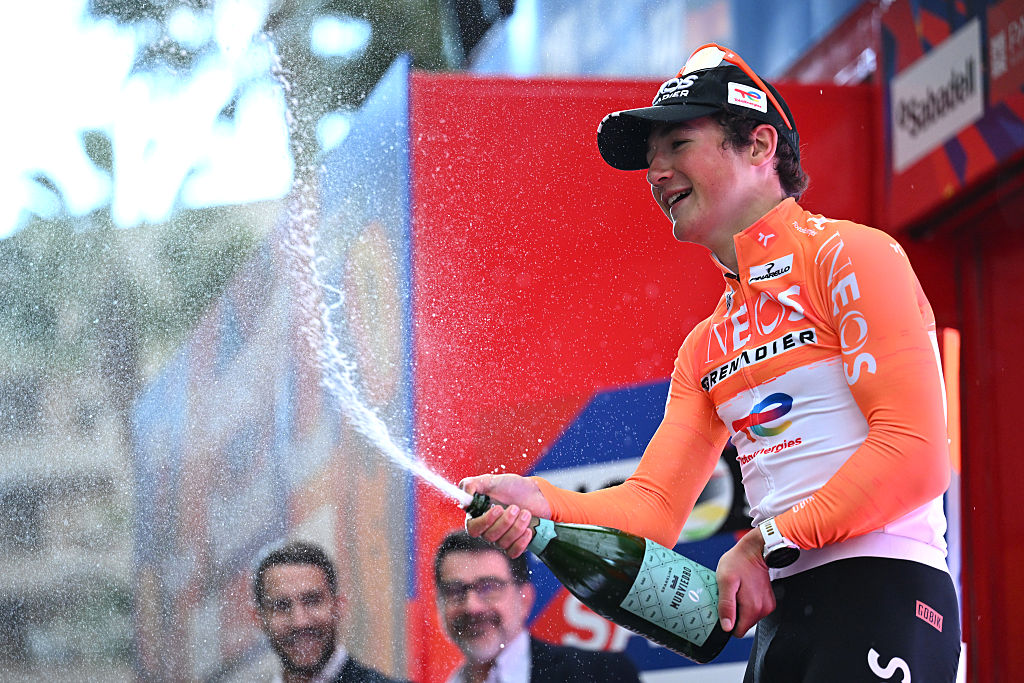An accidental diplomat: Fofonov takes the reins at Astana
Kazakhstani on new team manager role
The latest race content, interviews, features, reviews and expert buying guides, direct to your inbox!
You are now subscribed
Your newsletter sign-up was successful
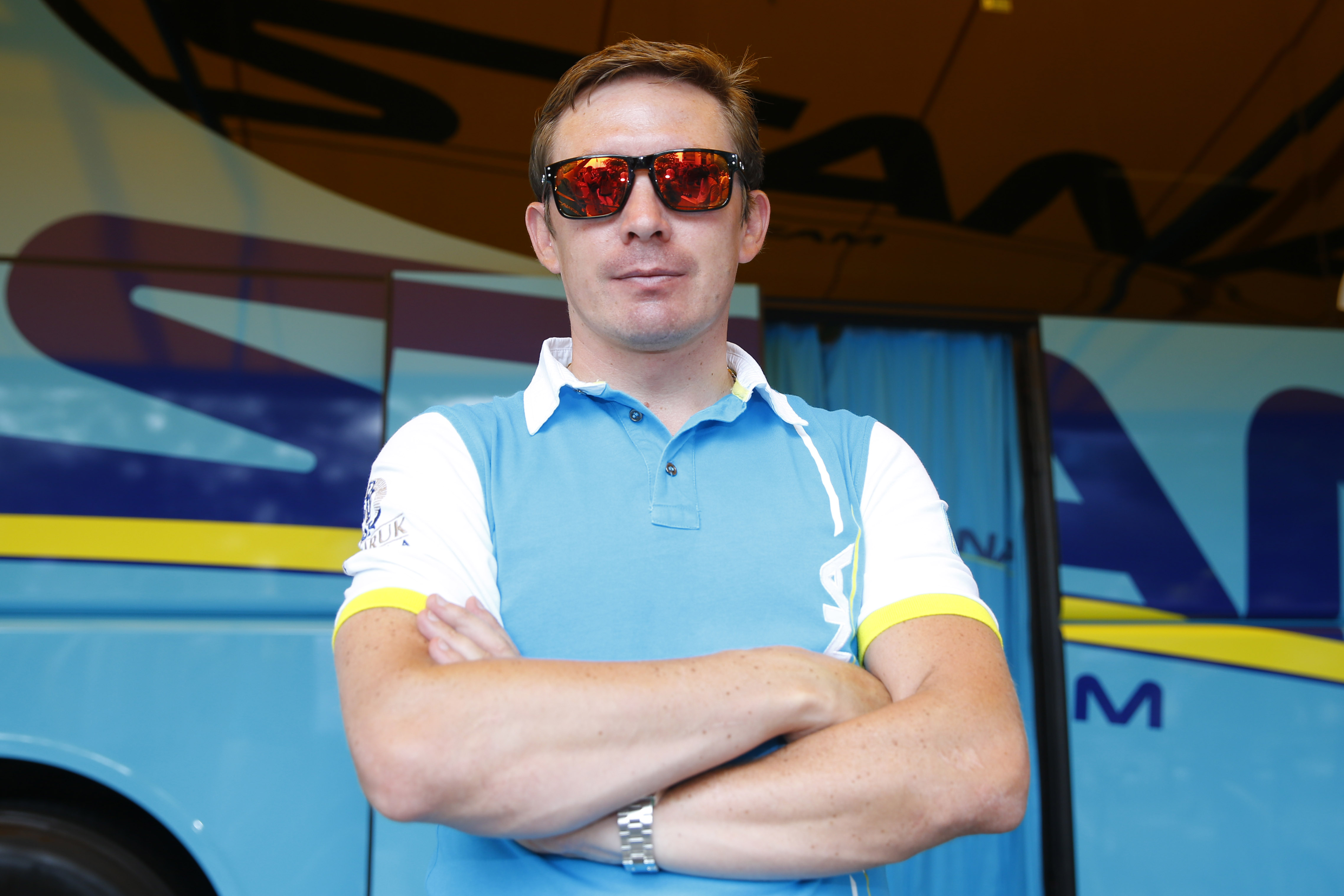
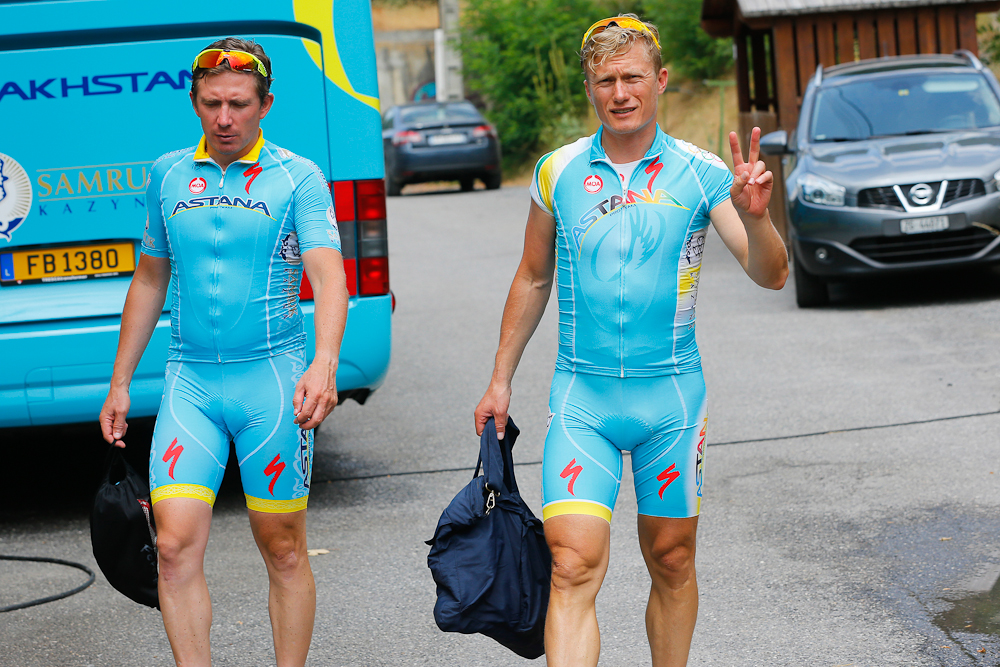
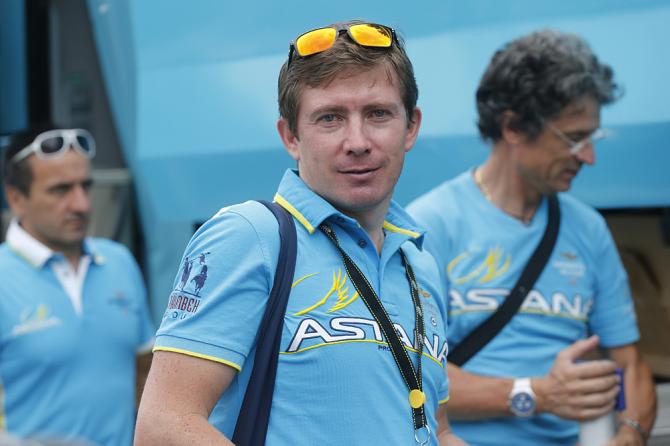
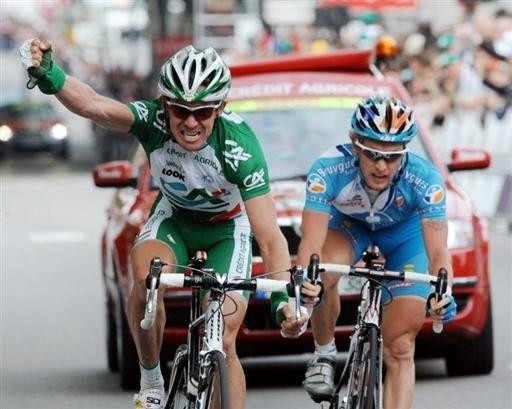
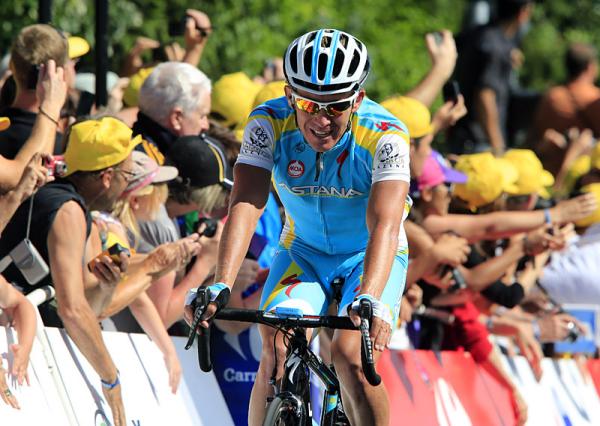
A search for Dmitriy Fofonov's name on Google brings up a series of headlines gravely announcing his positive test for the stimulant heptimanol during the 2008 Tour de France, and so when the Kazakhstani was named as Astana's new team manager earlier this month, it seemed a curious appointment for an outfit that has spent much of the past year trying to rehabilitate a rather toxic reputation.
Yet in a very roundabout way, that episode would ultimately lead to Fofonov's elevation with the Astana management structure. When the team was beset by a spate of positive tests in the Autumn of 2014, it was Fofonov, a relatively junior directeur sportif, who was delegated to make Astana's case at the Movement for Credible Cycling's annual meeting in Paris.
That was partly due to his command of French and his rapport with MPCC president Roger Legeay, his manager at Credit Agricole at that 2008 Tour, but also, an Astana source explained, because Fofonov had some prior experience in this field. He had, after all, managed to secure a reduced ban of three months for his own positive test by successfully arguing that he had ingested the stimulant inadvertently while taking a supplement to alleviate cramp, and was back in the saddle by the spring of 2009.
"It's the past and I can't do anything about it now," Fofonov tells Cyclingnews of the 2008 case. "Even so, it's now six years since I won my case and showed that the doctor committed the error. But look, I can't go back and search for excuses. I know there will be people who will say 'Ah, he's got a past, he's had a positive test' but I know that I have nothing to reproach myself for."
Now 39, Fofonov was part of the first wave of Kazakhstani riders to arrive in France as amateurs in the late 1990s, a generation led by Alexandre Vinokourov and the late Andrey Kivilev. Indeed, Fofonov raced alongside Kivilev at Cofidis early in his career, and then hung up his wheels at Astana the same time as his old friend Vinokourov at the end of 2012.
When Vinokourov took over as Astana general manager that winter, Fofonov was appointed a directeur sportif, but it wasn't until the team's WorldTour status was cast into doubt last winter that he was handed a more public role. After serving as emissary to the MPCC, Fofonov was designated as Astana's point man when the UCI Licence Commission decreed that the team would undergo an audit by the Institute of Sport Sciences of the University of Lausanne (ISSUL).
"As you know we had problems with our WorldTour licence and I was in charge of communicating with the University of Lausanne auditors, so as well as working as a directeur sportif last year, I did a lot of work on the organisation and the structures of the team," Fofonov says. "We've since come to the end of that audit process and the Licence Commission's decision to award us the licence demonstrates that the work has paid off."
The latest race content, interviews, features, reviews and expert buying guides, direct to your inbox!
That auditing process, incidentally, does not appear to have found any discrepancy in the fact that Dimitri Sedoun, manager of the Astana Continental team disbanded after its three positive tests in 2014, remains part of Astana Pro Team as a logistics manager. Nonetheless, the cessation of Licence Commission proceedings against the team in November marked a climb down for the UCI, and a victory for Fofonov and Astana.
Vinokourov and Martinelli
When Fofonov was subsequently installed as team manager in place of Giuseppe Martinelli, the assumption was that the Italian had been demoted, and though Martinelli quickly insisted that he had himself asked to be relieved of those duties in order to concentrate on being a directeur sportif, the longstanding rumours of discord between the Kazakhstani and Italian elements of the team will inevitably persist. In Italy, certainly, Fofonov's appointment was viewed as a political one, something of reaffirmation of the Kazakhstani influence in the team to the sponsors back home.
"You can't say that Martinelli's been removed from the team. We made a decision together. Giuseppe works well and I have a lot of respect for his experience. He will continue to work with us. He wanted more serenity by working solely as a directeur sportif," Fofonov says. "Ours is an international team, not just a Kazakh or an Italian one. We have Italian riders and, important Italian leaders. There were a lot of things written last year to create polemics but that's the press, and we can't control that."
Asked if he would prefer Astana to be a successful team or to enjoy a better reputation in the eyes of the public under his stewardship, Fofonov takes a pragmatic view. "In high-level sport, you live by your results," he says. "Now of course we want a good image for the team as well as victories, but when you're talking about the team's image, there will always people who like you and people who don't.
"You can't appeal to everybody, but if you look at the last few years, the team has made a lot of progress. Since Alexandre Vinokourov took over as general manager of Astana, it's brought a lot of serenity to the team. In the first years of the team, the management would often change completely from one season to the next, but now Alexandre is the real patron of the team."
Nibali and Aru
If Vinokourov wields all power behind the scenes, out on the road, the hierarchy is a little less clear. Although Vincenzo Nibali endured a troubled 2015 season, his fine solo victory at the Tour of Lombardy suggested that his star is hardly on the wane just yet. Fabio Aru, meanwhile, underscored his credentials by finishing second overall at the Giro d'Italia and winning the Vuelta a España.
An open leadership contest has been avoided thus far by having the Italian pair race together only occasionally, and the coming year should see them again divide the calendar between them, with Nibali headed for the Giro and Aru set for a Tour debut. Nibali, however, has refused to rule out racing La Grande Boucle himself.
"They're two different riders with different characters, but they're both winners and there's space for both of them," Fofonov says. "They can divide the season between them again. Nibali's coming off a season where he wasn't quite at his level and had a lot of bad luck but his finished strongly. This year he wants a strong team with him for the Italian races, and for Fabio, after his exploits last season, it's only normal that the Tour de France should be next on his path."
The elephant in the room all season, of course, will be Nibali's contract, which expires at the end of 2016. Trek manager Luca Guercilena has made no secret of his admiration for Nibali, and the addition of an Italian co-sponsor, Segafredo, has only heightened speculation that the Sicilian will swap Astana for pastures new in 2017.
"There are rumours in the press about him leaving but at the training camp in Calpe he was very motivated to work well, and beyond that, well nobody's said that he's not going to be kept on by the team," Fofonov says. "We're always ready to discuss things and to keep working together with full confidence. The team and the group around him will be working 100 percent for him as normal."
Fofonov's tactful take on the world is not limited to the confines of his own team. He speaks loquaciously but very carefully on Astana's expulsion from the MPCC – "Unfortunately, sometimes the rules of the UCI and the MPCC are in conflict, and we had to make the decision," he concludes – and is similarly measured when asked for his reaction to ASO's intention to withdraw its races from the WorldTour in 2017. ASO's move is a jab at both the UCI's proposed reforms and the demands of the Velon group and its member teams. Astana, of course, was not approached to join the group ahead of its foundation last year.
"We're not part of the Velon group, we've always stayed in support of ASO," Fofonov says, though he is mindful to take the middle ground. "Cycling needs to be reformed but it needs to be clear and everybody needs to be in agreement – the teams, the organisers and especially the UCI, which is the grand patron of cycling. They need to find the right balance because there are small races and teams going out of business."
Given Astana's torrid history and reputation, Vinokourov perhaps felt he needed a diplomat as much as a strategist at the helm. In Fofonov, he may have found him.

Barry Ryan was Head of Features at Cyclingnews. He has covered professional cycling since 2010, reporting from the Tour de France, Giro d’Italia and events from Argentina to Japan. His writing has appeared in The Independent, Procycling and Cycling Plus. He is the author of The Ascent: Sean Kelly, Stephen Roche and the Rise of Irish Cycling’s Golden Generation, published by Gill Books.
